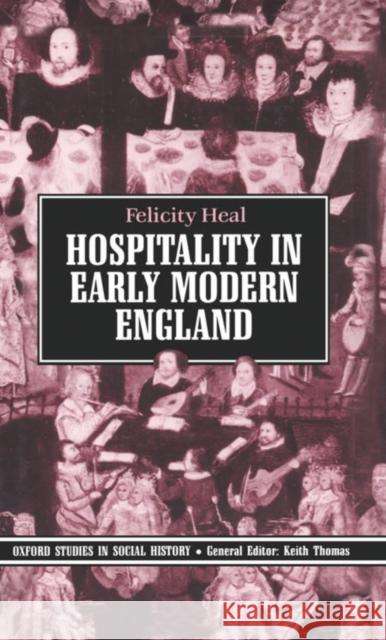Hospitality in Early Modern England » książka
Hospitality in Early Modern England
ISBN-13: 9780198217633 / Angielski / Twarda / 1990 / 372 str.
This book is the first study of the ideal and practice of hospitality in England between the fifteenth and seventeenth centuries. In early modern England, hospitality was believed to be a vital social virtue, comparable in significance to the maintenance of honesty or the proper pursuit of honour, and seen as one of the foundations of the moral economy. It was a Christian and moral duty to keep a good house: to be open and generous in entertainment of both rich and poor, neighbour and stranger. Hospitality is now regarded very differently, and our changed attitudes hamper our approach to the history of this period.Felicity Heal's study restores the hospitable ideal to its central place in early modern culture. She examines the manner in which it changed between 1400 and 1700, and its relationship to social realities, and demonstrates the significance of the forms and rituals attached to it. Hospitality in Early Modern England is a comprehensive analysis of beliefs and practices relating to hospitality at different social levels and in various settings. Dr Heal examines not only the nobility and gentry, the group on whom the duty of hospitality was most incumbent, but also the clergy, the urban magistracy and the yeomanry. Her comprehensive investigation of this neglected topic is a major contribution to our understanding of society and culture in early modern England.
This book is the first study of the ideal and practice of hospitality in England between the fifteenth and seventeenth centuries. In early modern England, hospitality was believed to be a vital social virtue, comparable in significance to the maintainance of honesty or the proper pursuit of honour. It was a Christian and moral duty to keep a good house: to be open and generous in entertainment of both rich and poor, neighbour and stranger. Felicity Heal demonstrates the significance of the forms and rituals attached to hospitality in the period, offering a comprehensive analysis of hospitality at all levels of society, including nobility and gentry, clergy and magistracy, and yeomanry.











